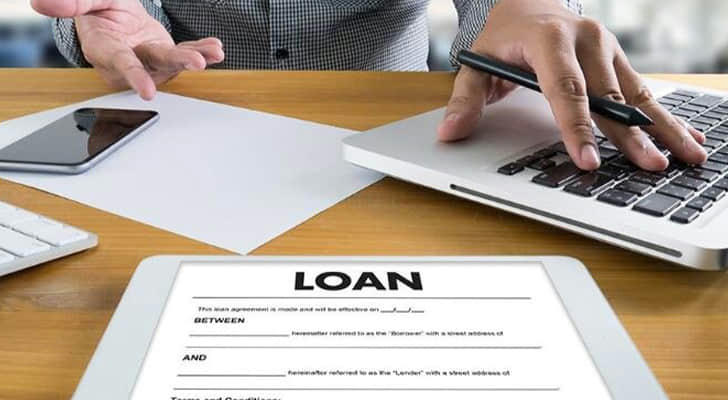Why a Personal Loan Might Be Your Best Financial Move?
Personal loans come with their own set of advantages and disadvantages, making them a useful option for some but not for everyone. For many people, personal loans offer more predictable repayment terms and lower interest rates compared to other financing methods like credit cards.
If you're borrowing a large amount of money or planning to use the loan for consolidating debt, the perks of a personal loan might be especially appealing. One of the key benefits is that most personal loans have fixed interest rates, which can be a big plus if you're worried about interest rates going up.

Top 10 Advantages of Personal Loans
The benefits you can gain from a personal loan depend on how you plan to use the money. It's worth thinking about the purpose of the loan and whether it offers more advantages compared to other funding options.
Here are 10 reasons why a personal loan might be a good choice:
1. Flexible Use
Personal loans offer great flexibility in terms of how you can use the funds. There's usually no restriction on what you spend the money on, which means you can apply for a loan even if you're not sure exactly what you'll use it for. Some common uses include consolidating debt, paying for weddings, taking vacations, covering college costs, or remodeling your home.
2. Lump-Sum Funding
Unlike credit cards or lines of credit, which provide access to funds incrementally, personal loans give you a one-time lump sum of cash. This can be particularly useful if you need a substantial amount of money upfront to cover large expenses, like paying off high-interest credit cards or funding home repairs.
3. Fast Funding
Many top personal loan providers can deposit the funds into your bank account as soon as the same day you apply. Others might take a few business days. This quick access to money can be crucial if you need to make an urgent purchase or settle overdue bills.
4. Positive Impact on Credit Score
Applying for a personal loan might temporarily lower your credit score due to a hard inquiry on your credit report. However, if you use the loan responsibly and make payments on time, it can help improve your credit score over time. Payment history is a key factor in your FICO score.
5. Higher Borrowing Limits Compared to Credit Cards
Personal loans often allow you to borrow more than you can with credit cards. While most personal loans range from $2,000 to $50,000, some lenders offer up to $100,000. In contrast, credit card cash advances usually allow only a small percentage of your total credit limit and come with higher fees and interest rates.
6. Lower Interest Rates
Personal loan interest rates are generally lower than those on credit cards. For example, the average interest rate for a 24-month personal loan was around 12.49% in early 2024, whereas credit card interest rates were around 21.59%. This lower rate can help you save money as you repay the loan.
7. Predictable Repayment Schedule
Personal loans come with a fixed repayment term, meaning you know exactly how much you'll pay each month and when your loan will be fully repaid. This differs from credit cards, where you can continuously borrow and repay without a set end date.
8. Flexible Repayment Terms
While the repayment period is predetermined, you may have options to choose from. Some lenders offer a range of repayment terms from 12 to 84 months, and others, like LightStream, offer terms as long as 240 months for larger loans.
9. No Collateral Needed
Most personal loans are unsecured, meaning you don't need to provide any collateral to get the loan. This is different from secured loans, where you would need to put up something of value as security.
10. Simple Application Process

Common Uses for Personal Loans
According to a national survey conducted by Investopedia, many people use personal loans for debt consolidation, home improvements, or other significant expenses. Understanding how others use these loans can give you an idea of whether a personal loan is the right choice for your needs.
FAQs About Personal Loans
What Are Some Drawbacks of Personal Loans?
One downside is that the best rates are usually reserved for those with good or excellent credit. If your credit isn't great, you might face higher interest rates. Additionally, some loans come with origination fees of up to 10% of the total loan amount, which can add to the cost.
What Are Some Alternatives to Personal Loans?
Depending on your situation, you might consider alternatives such as home equity loans, home equity lines of credit (HELOCs), peer-to-peer loans, credit cards, 401(k) loans, or cash-out mortgage refinancing.
How Much Can I Borrow with a Personal Loan?
Personal loan amounts can vary widely. Most lenders offer between $2,000 and $50,000, though some may go up to $100,000.
What Happens If I Pay Off a Personal Loan Early?
Most personal loans don't have prepayment penalties, but it's a good idea to check for any potential fees before you commit. Paying off your loan early can save you money on interest.
How Much Will a Loan Inquiry Affect My Credit Score?
A hard inquiry on your credit report can lower your score slightly, typically by around five points or less. However, this impact is usually temporary, and your score should recover within a few months.

Conclusion
Personal loans can be a great option for getting the funding you need quickly and with favorable terms. By comparing different lenders and understanding their interest rates and fees, you can find a loan that fits your budget and goals. Just be sure to borrow only what you need and choose a repayment plan that works for you.
